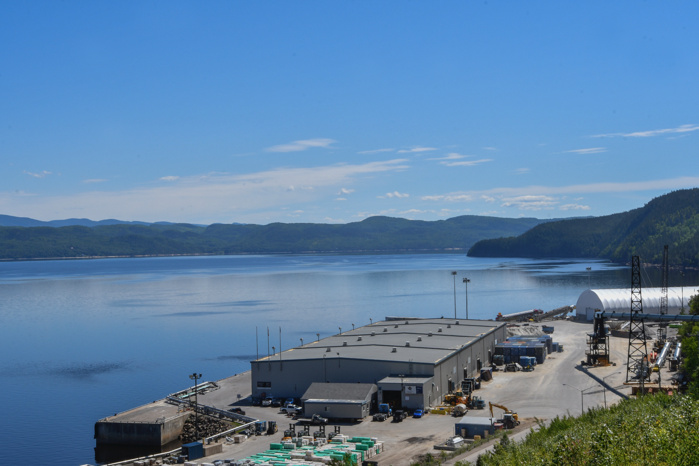(Montreal) There will be no more negotiations on a gas pipeline project that crosses the local territory of northern Quebec, say opposing Inoue leaders.
The Innu First Nations of Mashteuiatsh, Pessamit and Essipit say they are ready to take measures, or even initiate legal action, to prevent the establishment of LNG’s Énergie Saguenay in Quebec on their soil.
Friday’s statement came in response to comments by GNN Quebec president Tony Le Verger, who said last weekend that he wanted to continue negotiations with indigenous communities.
Mashteuiatsh First Nations Vice President and Innu First Nations spokesperson Charles-Edouard Verreault said in an interview Friday that GNL Quebec will not get their approval.
Innu First Nations had already voiced its opposition to the multi-billion dollar project in May, after the publication of a BAPE report on the project.
“We listened, we did our research on the project […]After BAPE’s conclusions, it was clear to us that our position would be firm, said Mr. Verreault. This project will not see the light of day in our lands. ”
The 500-page BAPE report concluded that the benefits of the 750-kilometre pipeline would not outweigh the associated environmental costs. The project study sparked an unprecedented response to a report from the organization with over 2,500 briefs submitted, 91% of which were against the project.
As stated in the BAPE report […]There is no effective way for GNL Quebec to ensure that LNG will actually serve as a substitute for more polluting fuels in its target export markets, said Mr. Verreault. Thus, it is impossible for the company to fulfill its commitments regarding the overall reduction of greenhouse gases. ”
GNL Quebec spokesman Louis-Martin Leclerc said in an interview that the company remains open to negotiations with communities to explain the benefits of the project.
“We are and remain open to dialogue in order to have the opportunity to explain our commitments and demonstrate that the Énergie Saguenay project will provide LNG with the lowest carbon footprint in the world, thus making an important contribution to the fight against climate change,” said Mr. Leclerc.
Mr. Virault said the Énergie Saguenay project was first introduced to Indigenous communities in 2014 as a measure to combat climate change.
The proposed route would transport LNG from western Canada to the Port Saguenay, Quebec liquefaction plant. However, Feriault said that he would cross the original lands.
He said that accepting a project that could pose environmental threats to the First Nations Inu goes against ancestral values.
Mr. Virault insisted that “this region is where our ancestors grew up centuries ago and where we hold the rights of our ancestors and the titles of the Inu”.
The Quebec government did not officially recognize the rights of the early Inu ancestors.
Quebec Minister of Indigenous Affairs Ian Lavrinier said Friday that he was aware of the position of the Ainu, but is awaiting a decision by Environment Minister Benoit Charette on the project.
The Quebec government indicated in April that it would decide by the end of the summer whether to green-light the project.
“All options are still on the table, on the level of actions we can take [pour arrêter le projet] If the government [va de l’avant] Mr. Verreault announced.
“There is no doubt that it will see the light in the Ino region,” he said.

“Subtly charming problem solver. Extreme tv enthusiast. Web scholar. Evil beer expert. Music nerd. Food junkie.”


